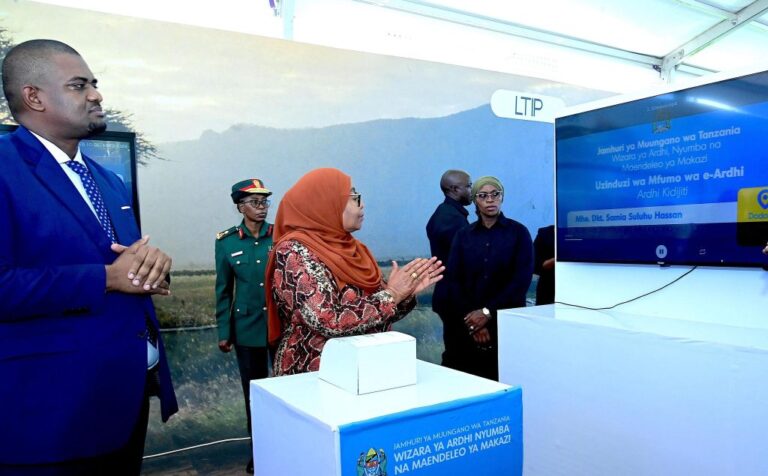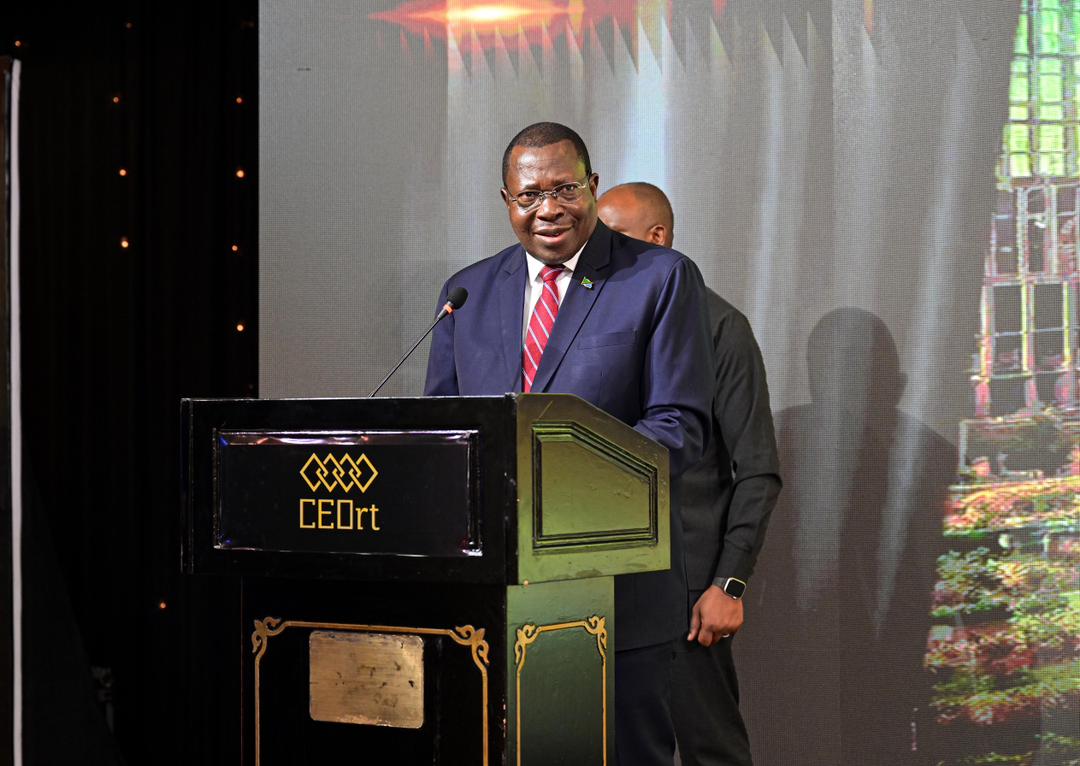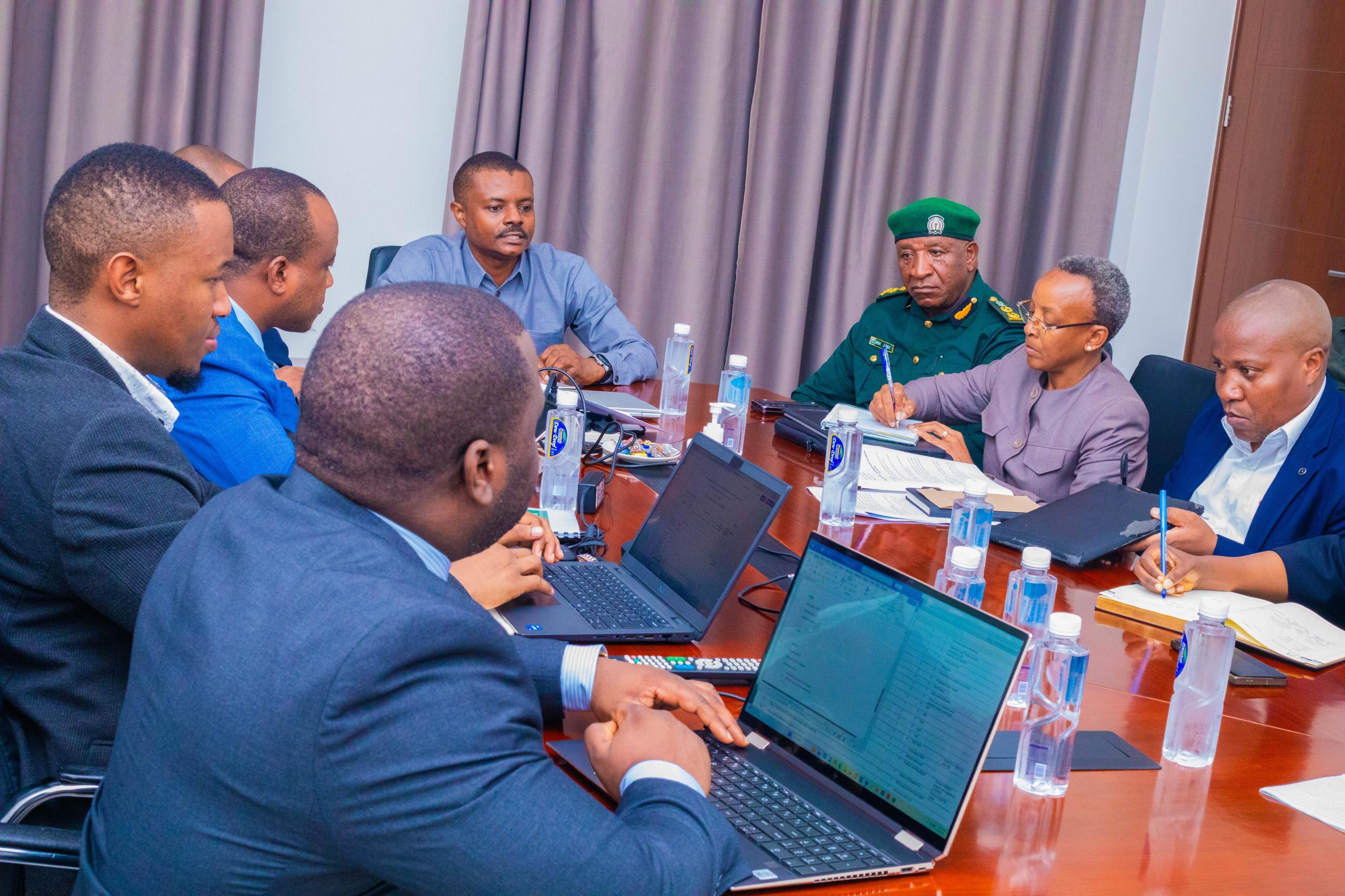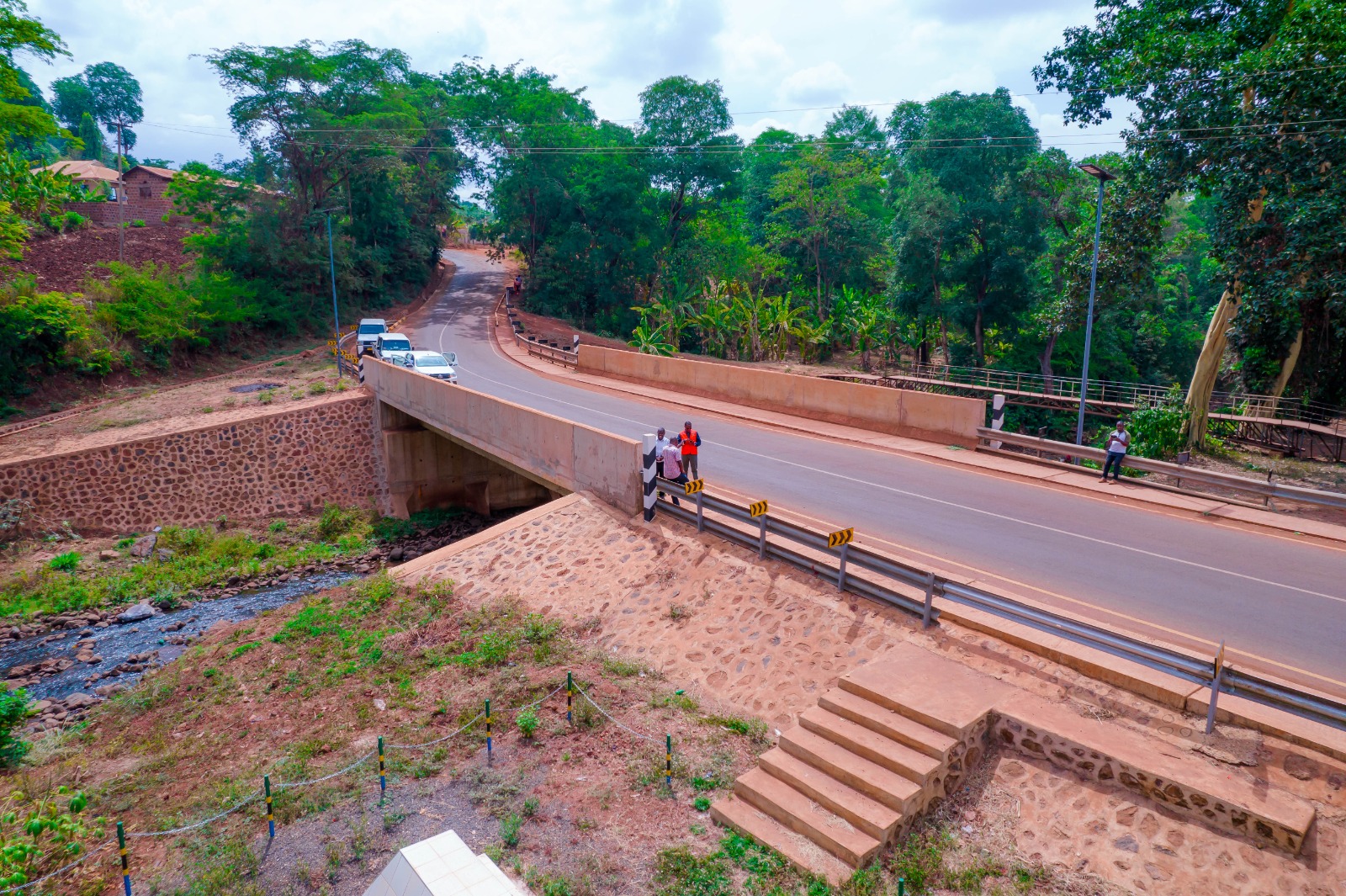Dar es Salaam. President Samia Suluhu Hassan has directed the ministry of Lands, Housing and Human Settlements to spearhead the creation of a Land Commission.
Speaking during the official unveiling of the 2023 Edition of the 2015 Land Policy in Dodoma on March 17, 2025, she said the commission would serve as a centralised hub for all matters pertaining to land ownership and utilisation.
It would also be instrumental in resolving land-related issues and fostering land-based investments across the nation..
“In an effort to enhance the oversight of land-related affairs, we can adopt a model similar to that employed for foreign investment facilitation [under TIC]. Consolidating all land provision services under a single entity,” she said.
“I think in improving management and oversight functions of land issues we can adopt a model similar to that employed for. Putting all land provision services under one roof,” she added.
This means land surveying, registration, management, and title issuance could all be integrated.
“This would be achievable through the establishment of a Land Commission,” she noted.
She said while the ministry currently has commissioners, including the Land Commissioner, a commission is essential to provide a structured framework.
“I urge you to explore the feasibility of establishing a Land Commission and clearly define its responsibilities. This, I believe, would greatly streamline operations,” President Hassan said.
Original policy principles
President Samia further clarified that the updated Land Policy, while introducing enhancements, upholds the fundamental principles of the original policy.
Land remains public property, with the President of the United Republic of Tanzania serving as its custodian on behalf of all Tanzanian citizens.
The right to own and utilise land, whether acquired through ownership, government allocation, or customary practices, remains the sole legal avenue for land tenure in the country.
Land ownership is exclusively reserved for Tanzanian citizens, while foreigners may lease but not own it.
Public land will continue to be categorised into three distinct types: protected land, village land, and general land.
The intrinsic value of land will persist in land transactions.
President Hassan said despite preserving the core tenets of the 1995 Land Policy, three decades of implementation have underscored the imperative for reforms to align with contemporary realities.
“The overarching objective of the revised policy is to cultivate a robust and equitable system for land ownership, access, and utilisation, thereby promoting sustainable development,” she said.
Strengthening Tanzania’s international boundaries
The policy revisions also aim to codify existing government practices that previously lacked a formal policy framework.
“Certain activities, such as the demarcation of Tanzania’s international boundaries with neighbouring countries, have been conducted without explicit policy guidance,” President Hassan said.
“The demarcation, which facilitates the identification of boundary markers, will now be enshrined in the policy to reinforce its execution and provide a basis for enacting or amending boundary-related legislation,” President Hassan further explained.
This initiative, aligned with the African Union’s objectives of fostering amicable relations in border regions, was previously undertaken solely based on political will, she hinted.
Its inclusion in the policy underscores the commitment to establishing clearly defined and secure international boundaries.
Blue economy
President Hassan said the updated land policy also recognises burgeoning opportunities within the blue economy, emphasising the need for a legal framework to manage, demarcate and allocate aquatic resources effectively.
The revised policy outlines a framework for managing marine resources, including land surveying and titling in aquatic environments to ensure the resources are utilised efficiently and sustainably.
This will enable the efficient and productive utilisation of these resources, ensuring sustainable benefits.
“This will address ongoing disputes regarding shifting lake or river boundaries. We will now undertake surveys, acknowledging the inherent challenges and the necessity for diplomatic engagement with neighbouring countries to delineate our borders and prevent future conflicts,” President Samia stated.
Real estate sector
The burgeoning real estate sector has also been addressed in the updated policy.
President Hassan lamented that while the sector has witnessed growth and increased stakeholder participation, its contribution to the national economy remains below its potential.
The revised policy aims to bolster the management of the land market.
“Many potential investors in real estate ventures, such as those under the National Housing Corporation (NHC), were deterred by the lack of clarity in the previous policy. The revised policy will pave the way for legislation that encourages investment and addresses the housing deficit,” President Samia affirmed.
The updated Land Policy also incorporates longstanding requests from the diaspora to utilise land in their homeland.
This inclusion is expected to foster greater engagement and investment from people of Tanzanian origin and Tanzanians living abroad who have been demanding for land law reforms to enable conduct land-based investments in Tanzania.
Historical context of land policies and legislation in Tanzania
The history of land policies in Tanzania dates back to the colonial era.
Speaking at the Dodoma event, the minister of Lands, Housing and Human Settlements Development, Deogratias Ndejembi, said the first significant legislation, the Land Act No. 3, was introduced by British colonial authorities in 1923.
This legislation served as the cornerstone of land law in Tanzania for more than 50 years.
Post-independence, the Arusha Declaration of 1967 led to the Land Acquisition Act No. 47 of 1971, followed by the Villages and Ujamaa Villages Act No. 21 of 1975.
“Post-independence, the absence of significant, updated land legislation created a policy vacuum, resulting in widespread land disputes,” Mr Ndejembi noted.
The proliferation of land-related problems prompted President Ali Hassan Mwinyi to establish a presidential commission of inquiry into land matters in 1992.
Chaired by Professor Issa Shivji, the commission reviewed land laws and policies, investigated land disputes, and proposed solutions, ultimately paving the way for land tenure reforms.
The commission’s recommendations paved the way for the development of the comprehensive 1995 Land Policy.
Four year after the unveiling of the policy the Land Act No. 4 of 1999 and the Village Land Act No. 5 of 1999 were passed.
Despite these efforts, persistent challenges such as continued widespread land conflicts and controversies surrounding land ownership by women necessitated further reviews.
Initial attempts in 2010 and 2015 were inconclusive, but the 2023 review has successfully culminated in the updated policy unveiled this year.
“Initial attempts at revision were made in 2010 and 2015, but were not finalised,” Mr Ndejembi explained.
Ultimately, the 2023 revision process culminated in the Edition that was unveiled on March 17th, 2025.







